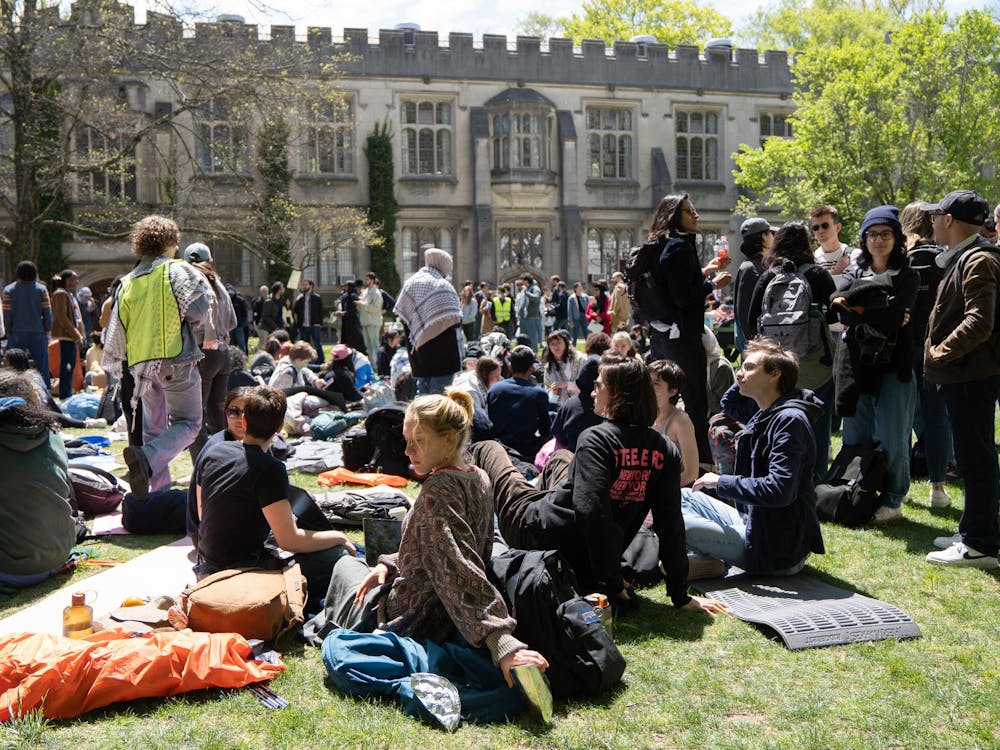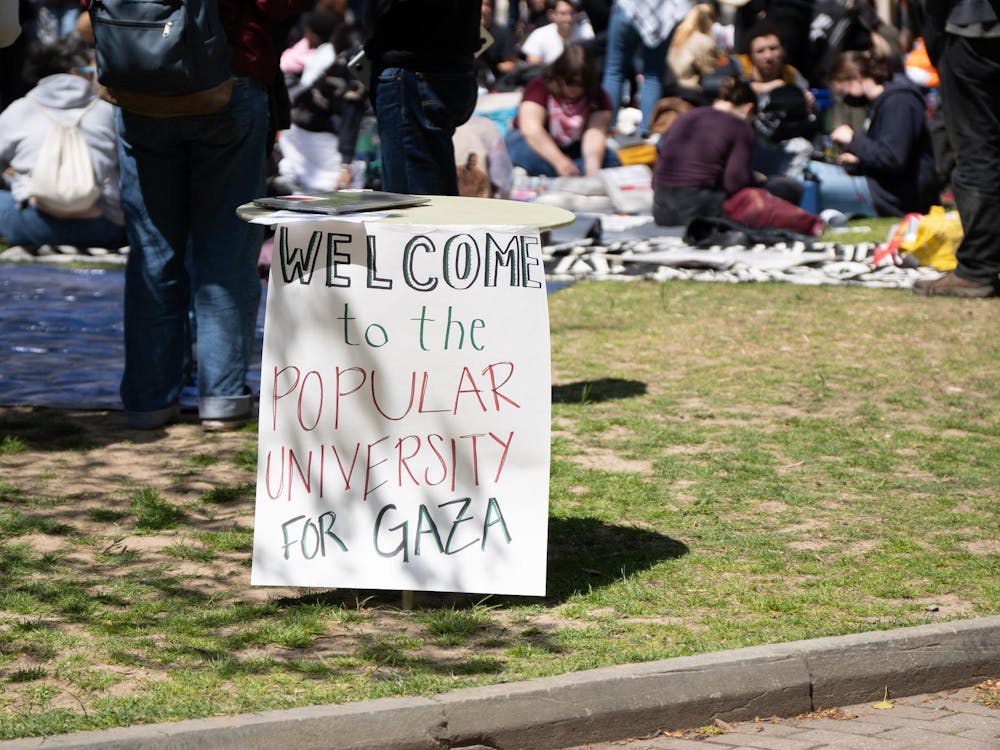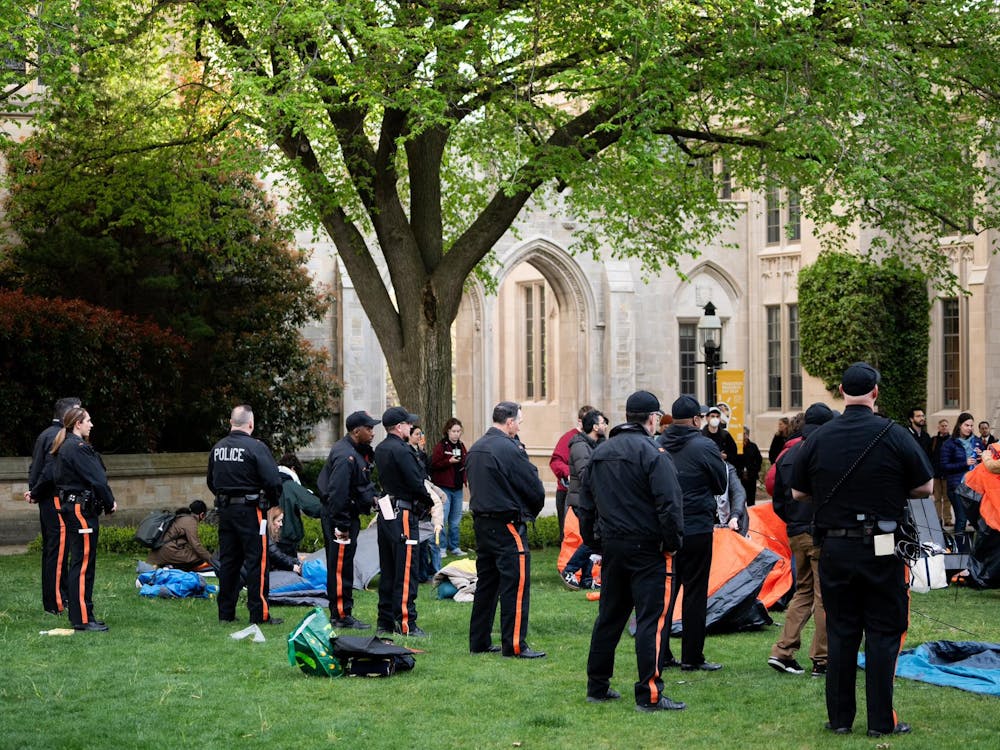The Black Justice League is demanding to remove Woodrow Wilson’s name from campus institutions, and in doing so they are asking for a divisive legacy to be reconsidered. I believe this is a crucial issue — today’s Princeton is an institution that prides itself on bringing together people of all walks of life and all backgrounds. However, I argue that there are more pressing sources of divisiveness than Wilson’s name in today’s Princeton. Woodrow Wilson’s woes were relevant to Princeton of the early 20th century, the time he governed the University. Before we travel more than 100 years back in time, I believe we should be fixing the Princeton we live in today.
I am going to say something that by some is considered an obvious truth, and by others blasphemous slander: Eating clubs are divisive institutions, and one of the biggest problems in today’s Princeton. Some will be angered by the comparison between Wilson’s bigotry and racism and today’s eating clubs. On paper, the eating clubs provide a welcoming social structure for all of Princeton’s students. But this is on paper only.
Ivy Club, the first of the eating clubs, was founded in 1879, almost 30 years before Wilson became the University’s president, when the University was still just a country club for rich white boys. Historically, Ivy was a symbol of elitism and segregation. Ivy, along with the Tiger Inn and Cottage Club, began admitting women in 1991, 22 years after the University began admitting women, and only after being forced to do so through a lawsuit. Today, the Bicker system supposedly does not discriminate on the basis of gender or race. Yet, the fees required to be a part of Ivy and other eating clubs create a different kind of division: one of socioeconomic class.
Even those who don’t fit in at Ivy might try to fit in at some of the Street’s more inclusive options, namely the non-Bicker clubs. However, these too are part of a system of divisiveness. There are those who belong, and those who do not, and what makes a person belong is the ability to pay thousands of dollars a year to buy one’s way into the social structure.
The University’s additional financial aid doesn’t cover the difference between even the cheapest eating clubs and any other dining option. And really — why should it? Princeton shouldn’t be expected to fund students’ partying escapades, nor should it be expected to provide its students with a social structure entirely disjointed from the society for which it aims to prepare its students.
To those who argue that Wilson’s racism has nothing to do with the eating clubs’ inherent elitism, I say that fighting these divisions is in fact very similar to the BJL’s fight: a struggle for a Princeton experience that is equal for all its students, regardless of race, gender or socioeconomic standing.
I believe that just as today we look back at Princeton’s race- and gender-based discrimination as a calamity, Princeton of the future will look back at the eating clubs and recognize them for the social divisions that they perpetuate. Instead of dancing around the issue for a few more years, we should be addressing this today. A truly inclusive campus will be one that accepts all students, no matter the color of their skin or the size of their parents’ bank accounts.
I do want to recognize that in recent decades Princeton has made significant strides towards promoting equality on its campus, ranging from a groundbreaking need-blind admissions policy, to this past summer’s Pre-Read, "Whistling Vivaldi," which required all incoming students to face the ways in which stereotypes of different kinds might play into our academic experiences. However, Princeton has a ways to go, and in going forward, we should be addressing the most pressing issues. Creating a substantial alternative to the eating clubs is a far more crucial issue in promoting an equal Princeton than renaming a few buildings.
Iris Samuels is a freshman from Zichron Yakov, Israel. She can be reached at isamuels@princeton.edu.
Update: This column has been updated to reflection exclusions in the original version.









